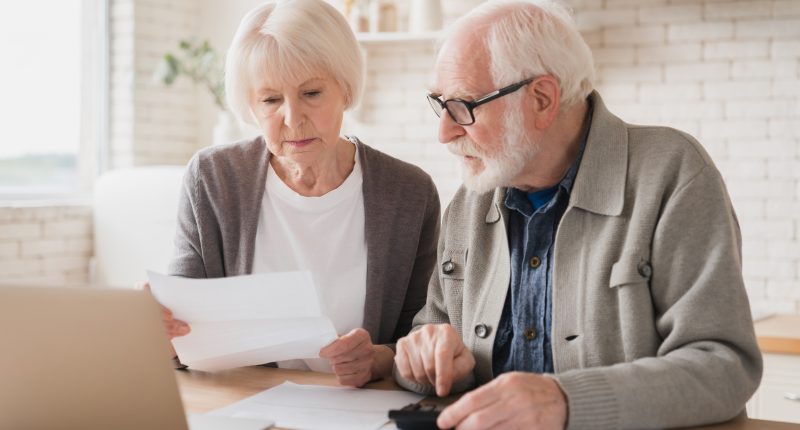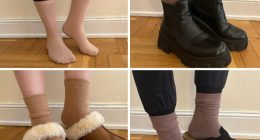HUNDREDS of thousands of women pensioners could soon face unexpected tax bills, a former pensions minister has warned.
Many will be dragged into paying income tax for the first time due to the freezing of income tax thresholds and the rising state pension.
The issues affects those who use a tax break known as the marriage allowance, which lets you share some of your tax-free allowance with your spouse.
It’s a way that couples can legally reduce the tax they pay, and it can save them hundreds of pounds each year.
A couple would benefit as long as one of them was earning income below the tax-free personal allowance of £12,570, and the other pays the basic rate of tax.
You cannot claim a marriage allowance if you’re living together but you’re not married or in a civil partnership.
The latest government figures suggest that around 2.1m couples benefited from the marriage allowance in 2020/21 and around 750,000 of them are pensioner couples.
Until now women pensioners have been able to hand over 10% of their tax free allowance which works out to be about £1,260 to their partners, provided the woman is 10% under the tax threshold.
The husband would then be able to save 20% on that figure resulting in an average saving of about £352 a year.
Now cash increases in the value of state pensions and a freezing of the tax threshold means more women will cross over the 90% threshold.
Most read in Money
If the new state pension rises by 8.5% next April as expected it will be worth around £11,500 per year or around 91.5% of the full personal allowance.
The tax will be collected through the ‘simple assessment’ process via a tax demand in the post after the end of the financial year, and which will see a lump sum deducted.
Sir Steve Webb, partner at LCP said: “This is yet another unwelcome by-product of the year-on-year freeze in the value of the tax allowance.”
“Hundreds of thousands of women have signed over part of their tax free allowance in order to reduce their husband’s tax bill.
“But as the state pension rises many of these women may now find they end up with an unexpected tax bill.”
“We could see marriage allowance ‘mayhem’ as hundreds of thousands of couples have to decide whether to carry on with this arrangement or cancel it, to avoid low income pensioners being dragged into the tax net.”
“The sooner the freeze on tax allowances comes to an end, the better”.
Couples will only have two options in light of this change.
They can carry on with the marriage allowance, leaving the wife getting a small tax bill every year.
Or cancel the marriage allowance, increasing the husband’s tax bill and potentially leaving the couple worse off overall.
This will affect non-pensioner couples as well, but many are worker couples with one person acting as a ‘stay-at-home’ partner with little or no taxable income.
This means they are far less likely to reach the 10% taxable income threshold.
Who is eligible for the marriage allowance?
You can claim marriage allowance if all the following apply:
- you’re married or in a civil partnership
- you do not pay income tax or your income is below your personal allowance (usually £12,570)
- your partner pays income tax at the basic rate, which usually means their income is between £12,571 and £50,270 before they receive marriage allowance
You cannot claim marriage allowance if you’re living together but you’re not married or in a civil partnership.
You can backdate your claim to include any tax year since April 5, 2018 that you were eligible for marriage allowance.
Your partner’s tax bill will be reduced depending on the personal allowance rate for the years you’re backdating.
To work out how much you will get you can use the government’s marriage allowance calculator.
How can I apply for marriage allowance?
You can apply for marriage allowance for free online through the government’s website.
If both of you have no income other than your wages, then the person who earns the least should make the claim.
If either member of the couple gets other income, such as dividends or savings, you can call the Income Tax helpline to work out who should claim.
HMRC will then give the allowance you’ve transferred to your partner by changing their tax code or when they’ve sent their self assessment tax return.
Bear in mind that it can take up to two months to change a tax code.
If your new Personal Allowance is lower than your income after you’ve made a claim, you might have to pay some income tax. However, you might still benefit as a couple.
Do you have a money problem that needs sorting? Get in touch by emailing [email protected].
You can also join our new Sun Money Facebook group to share stories and tips and engage with the consumer team and other group members.
This post first appeared on thesun.co.uk









